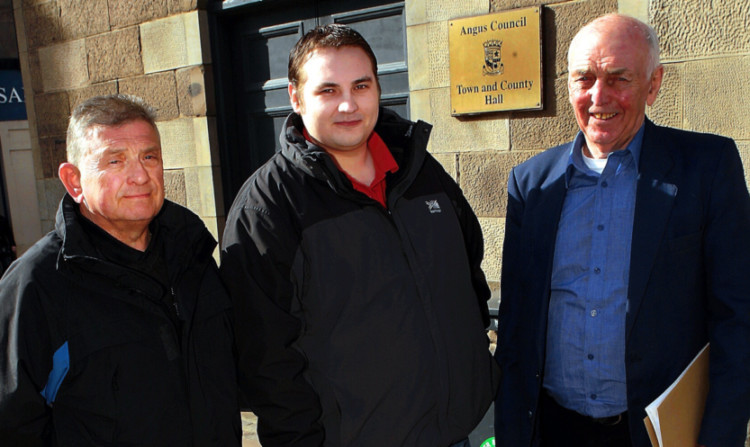Marchers have expressed relief after being given the green light to continue an Angus tradition of five decades following a leading councillor’s criticism of a Police Scotland shift in the handling of public processions.
The Scottish Republican Socialist Movement had feared they might be forced to give up their annual Arbroath pilgrimage on April 6 for a procession from the town harbour to a park behind the abbey.
Angus Council officials said they had no objections to the planned parade as long as a rolling road closure was put in place to control traffic, but a change in Police Scotland’s approach had left the event organisers facing the prospect of paying for a costly temporary traffic regulation order.
At a meeting of the council’s public processions sub-committee in Forfar on Wednesday, event organiser Donald Anderson expressed astonishment over the new turn of events.
He said the group had been looking at a bill of £500-£1,000 for the relevant order, with a question mark also hanging over whether it could be processed in time after the bureaucratic hurdle cropped up at the 11th hour.
“We are a cross-party organisation and at a loss to understand why this particular council wants to charge us for the right to march,” he said.
“This is not uniform throughout Scotland and I wouldn’t like to see a precedent set which would be the thin end of the wedge.”
Police representative, Sergeant Iain Bethway, told the committee the move to Police Scotland had meant that a corporate approach had to now be taken to the policing of such events, to keep people safe, enforce traffic regulations and, where appropriate, take action against inappropriate behaviour.
“Where there is a requirement for road closures, the organisers should ensure that appropriate orders are in place,” he said.
Sub-committee convener Alex King told Sgt Bethway: “I want you to take it back to Police Scotland that over 40 years or more this march has been taking place in Arbroath without any trouble whatsoever and I don’t see the need for traffic orders or this sudden change in policy.
“I’m beginning to wonder whether Police Scotland has been a good thing. There are far too many things that are coming out from Police Scotland that are to the detriment of the public that they are supposed to serve.
“I’m beginning to wonder if we are getting into a situation of them saying what they are not going to do and what we can’t do, rather than the other way round,” he added.
“We are obviously going to have to spend some time in discussion with the police on where we are going with administering this kind of procession, but in this case I am moved not to make any order which would prevent it taking place, or to impose conditions on it,” said Mr King, an approach unanimously agreed by the three-councillor sub-committee.
Following the decision, Mr Anderson and fellow organiser, Sean Cameron, said they were happy with the outcome but remain concerned over the implications for future events of the corporate police approach.
